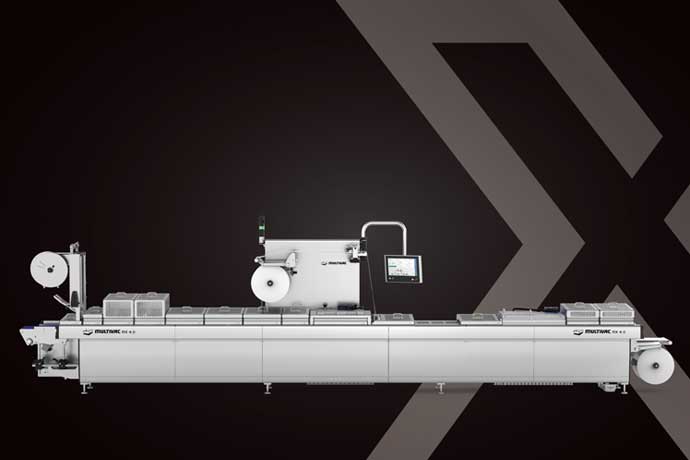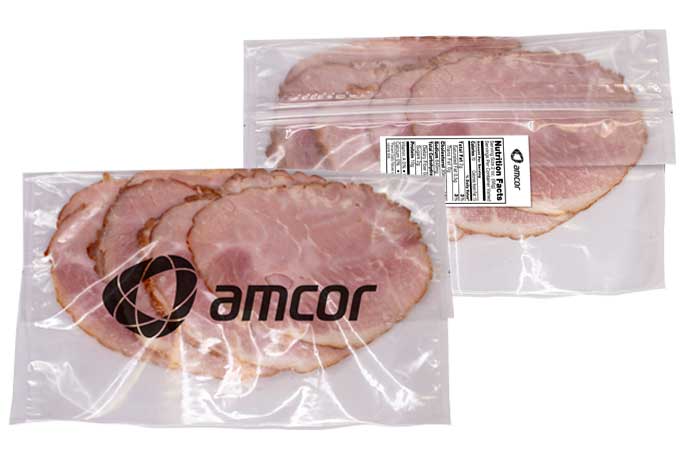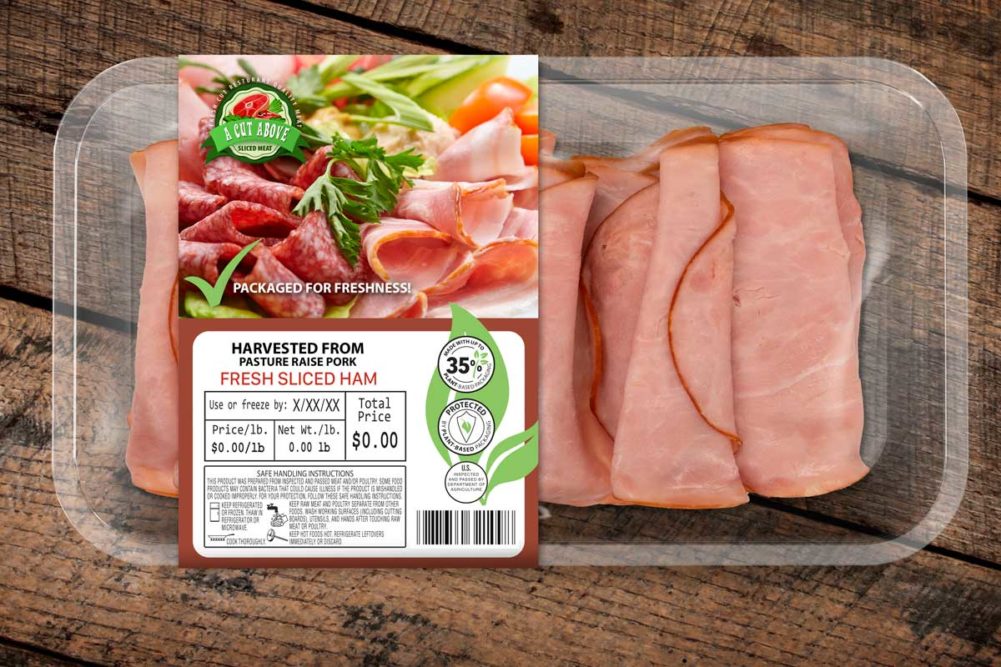When the pandemic set in, more people began to eat at home. The ubiquitous cafeteria trays and bag lunches were replaced by grab-and-go snacks that could be pulled from the fridge when needed. Along with that, trips to the grocery store became opportunities for people to stock up on food.
In the supermarket deli section, consumers are now looking for meat products that offer convenience while keeping products fresh longer. Food companies are looking for packaging that can maintain these attributes while standing out on the shelf and enticing consumers with innovative packaging styles.
“Brands have been expanding their deli meat offerings due to the increased demand for at-home dining. Today’s consumer is looking for convenience, freshness, and new flavor offerings,” said Holly Thomas, Sealed Air marketing director of smoked and processed meats and dairy.
How often do people working from home or home-schooling their children find themselves opening the refrigerator to just pull one or two slices of deli meat to snack on? Package resealability is tantamount to locking in freshness and adding more lifespan to sliced cold cuts.
Charlotte, NC-based Sealed Air has positioned its Cryovac brand with a number of different options that appeal to both retailers and consumers. The Multi-Seal FlexLOK packaging solution features a resealable, adhesive design that offers a reliable easy-open and easy-close technology that allows you to open and close the package multiple times. This enables consumers to maintain the integrity of deli meat in its original packaging for longer, Thomas said.
Many Cryovac products offer Enhanced Easy Open sealant that offers easier accessibility to the product with improved peel quality for clean separation of top and bottom films which benefits both consumers and retailers.
For retailers, Cryovac Grip & Tear shrink bags are being used to eliminate the need for cutting tools to open whole muscle processed deli meats. The easy-open pull tabs allow deli counter staff a safer alternative to opening bags without the risk of injury while maintaining the quality and integrity of the product.
Sealed Air is not only working on packaging designs, but designing equipment to improve on CPG and meat companies’ packing abilities. The BL75 is a fully automatic, high-speed bag loader that addresses all of a company’s needs from labor reduction, to minimizing cost per head to maximizing the total cost of equipment ownership, Thomas said.
The BL75 reduces the repetitive and labor-intensive process of loading product into bags by an automatic advancing feature of the product. It opens the taped bags and inserts the product directly into the opened bag via high-speed belt, thus creating an efficient and consistent bag loading operation.
Efficiency is key. With the increase in consumer demand for grab-and-go deli products, CPG and meat companies need high production with high consistency of product.
Emphasis on efficiency
 Multivac’s RX 4.0 thermoforming packaging machine was designed to make adjustments while product is going through the machine in order to ensure the package remains the same, every single time.
Multivac’s RX 4.0 thermoforming packaging machine was designed to make adjustments while product is going through the machine in order to ensure the package remains the same, every single time. | Multivac
Multivac, with US headquarters in Kansas City, Mo., released its RX 4.0 thermoforming packaging machine about three years ago, but the company is continually adjusting its functions to highlight efficiency on production lines.
The machine can automatically adapt its processes to the product’s packaging needs through its multi-sensor control that integrates the forming and sealing dies within its electronic sensor controls.
“It is more process controlled than time controlled,” said Christian Uebele, product market manager of thermoformers for Multivac. “It will – on the fly – adjust to ensure that the package is going to be the same every single time. This machine takes the place of a highly trained technician, it will make adjustments by itself.”
The RX 4.0 can essentially eliminate the need for a lot of the servicing that high-performance thermoforming machines need.
One consumer trend that has been seen across the packaging industry is packaging that actually looks imperfect. Packaging companies, processors and retailers have seen that consumers tend to opt for products that look like they were packaged in-house.
In terms of deli products, grocery customers are drawn to items that have minor imperfections or are packaged in thin plastic that look like generic deli bags.
“That’s kind of odd for us where we are usually known for our quality packages that look perfect, feel perfect,” Uebele said.
Multivac is adapting some of its machinery now to make packaging intentionally look handmade. The key is to maintain the same level of quality in the packaged product as if it was done in a processing facility. The package must still be able to hold a good seal, to maintain freshness and offer the same shelf life while also branding itself to customers as a more artisanal product.
 Amcor Flexibles of North America made a pledge in 2018 to develop all its packaging to be recyclable or reusable by 2025. | Amcor Flexibles of North America
Amcor Flexibles of North America made a pledge in 2018 to develop all its packaging to be recyclable or reusable by 2025. | Amcor Flexibles of North America
Yet, consumers should not be considered a uniform group. Packaging companies know that they need to provide their customers with a variety of choices when it comes to packaging solutions.
Amcor Flexibles of North America has put a lot of resources behind their AmPlify portfolio that offers their customers the option to customize to the specific brand’s look and tactile feel. They offer a full range of labeling options from matte and gloss to metallic, anti-glare or holographic.
In keeping with the company’s 2018 pledge to develop all its packaging to be recyclable or reusable by 2025, Amcor is using more recyclable APET (Amorphous Polyethylene Terephthalate) materials in many of their packaging lines. More recyclable plastic material is going into Amcor’s SmartTack EZ Peel Reseal and SmartTack Die Cut Resealable Label solutions which are perfect for grab-and-go deli products.
Along with this, the company is leaning into paper-based packaging solutions that offer the same sealability and shelf life as fully plastic packaging, said Melanie Bandari, senior marketing manager at Amcor.
“Packpyrus is a new line of thermoformable paper in combination with high oxygen barrier materials,” she said. “It is widely sold in Europe today for deli meats and is expanding into the Americas.”
The structure is 85% paper with a barrier layer to ensure sealed-in freshness and maintain shelf life and, most importantly, can be run on existing thermoform equipment so no additional investments are needed, she said.
Sustainability is a growth sector for packaging companies. As meat companies look to meet their sustainability goals, there will be more demand for recyclable packaging that contains renewable source materials. The deli section will be one of the places where this will be seen.
Consumers are very discerning about the products they choose to buy and sustainable packaging will only increase demand.


